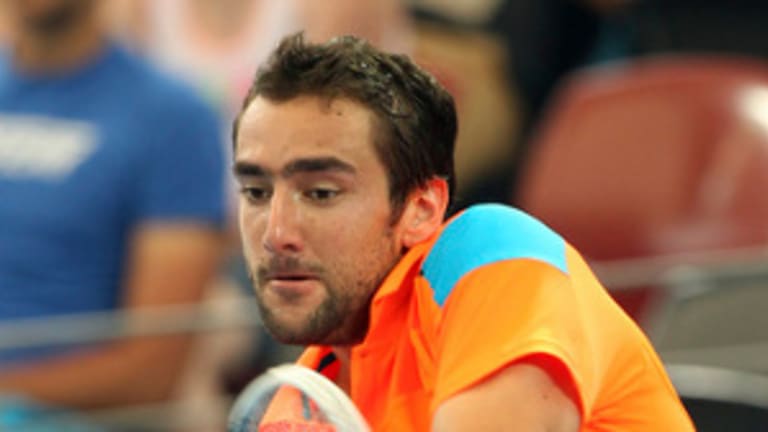Maybe it’s just that tennis is such an intimate, up-close kind of game, but those who play it at a high level tend to make strong, satisfying, lasting impressions. Often, a pro’s style is reflected in his or her personality (or is the personality reflected in the style?). Perhaps I’ve just been conditioned, but it’s hard to envision Rafael Nadal playing like Roger Federer, or vice versa. Or Kevin Anderson playing like Bernard Tomic.
Along those lines, is there a stronger marriage of game and personality than what we see in Fabio Fognini, or Jerzy Janowicz? Those players send very strong signals, while others send milder ones. Novak Djokovic, for example, is a very difficult read in that department. He’s part grinder, part shotmaker. Not quite elegant in a Federer-esque way, nor conspicuously earthy in the manner of Nadal.
But the interesting thing isn’t really how we see these people, it’s that we have such strong impressions of them, which in turn helps explain why we form such powerful opinions about them. Tennis is a game that demands that you play favorites and exercise your prejudices, even when they’re silly or insupportable. If you don’t believe me, just check out the comments section in any of my posts about rivals.
It isn’t noteworthy when a pro creates a strong impression; in fact, the notable thing is when one does not. And that’s what brings me to Marin Cilic. I find this 25-year-old Croatian one of the most baffling players on either tour. I can’t quite figure him out, even to my own satisfaction (never mind nailing him down in prose for others).
Is Cilic an unrealized Grand Slam champion, or just another talented player riding the ups and downs of life in the Top 20? Is he a drug cheat, or a victim of an overzealous anti-doping establishment that was looking to take a big scalp (a convoluted tale I won’t go into here)? Is he an all-court player or a baselined? A strong competitor or, under that calm and upright exterior, a head case? A warrior or a natural born misfit?
Is Cilic one of the top two or three Grand Slam contenders among those players who have yet to win one, or someone whose chances of winning a major diminish in direct proportion to how close he comes to achieving it?
These are questions I don’t feel I can answer, despite having watched Cilic for years. I’m not even tempted to fake it. And I don’t think it’s just because I’m deficient. I sense it’s also because there's something amorphous about this guy, something unperceived or perhaps even missing that keeps me from feeling like I have a handle on him.
The one thing upon which everyone seems to agree is that Cilic is a really nice guy. As Nadal said, when Cilic returned from his somewhat controversial doping suspension at the Paris Masters, “He’s a good guy and a great player. I don’t know what happened, but if he’s back it’s because it’s fair that he’s back. That’s all. Happy for that.”
I’ve sat and talked with Cilic a few times, and came away with the same “good guy” impression. He’s quiet and seems thoughtful. He speaks in measured tones and weighs his words. Ask him a tough question and he seems to make a conscious—and not always easy—effort to give you a respectable answer. The big question in my own mind has always been, “So why hasn’t this guy been more of a force in the game?”
That, too, adds to this mystery that is Marin Cilic.
Could it be that he’s too thoughtful? Too nice a guy? Has he come up short because there’s something lacking in his game? Did he miss out on some vital, developmental step? Are his coaches detriments, hindering rather than helping him overcome whatever it is that’s holding him back? Could it be as simple as this: Not every really good player is destined to win a Grand Slam title, never mind a pile of them.
These are the things Cilic makes me think about. These are the things for which there are only a few clear answers.
